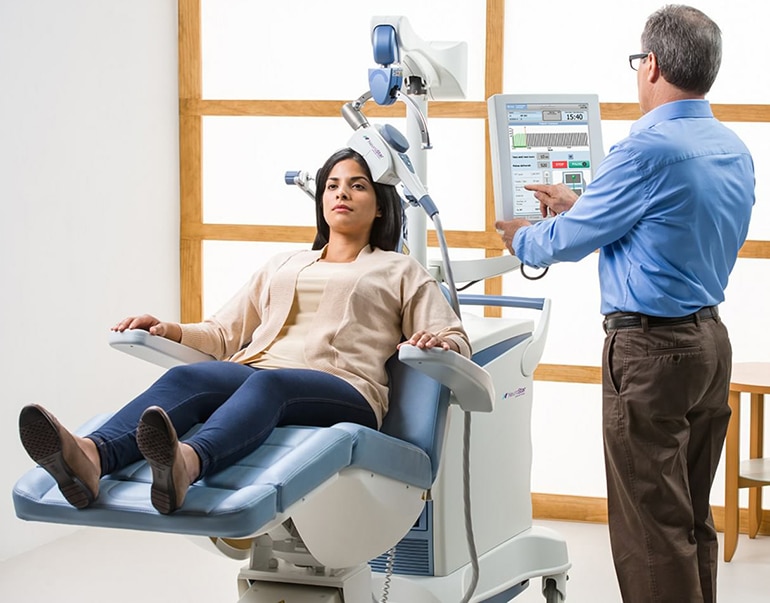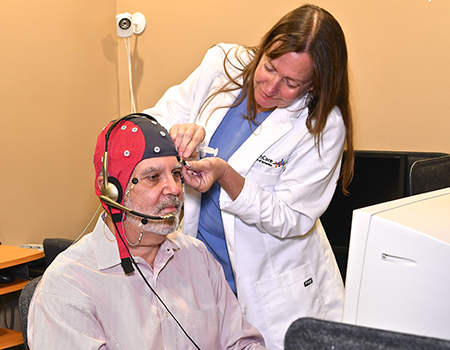How to Choose the Right TMS Provider for You
Selecting a TMS provider is a big decision, and you must know what to look for when choosing the best TMS provider. TMS is an innovative treatment for mental health conditions such as depression and OCD. However, because it is so new, you may not know what to look for in a competent TMS or facility.
Just as each patient is unique, each provider may have a slightly different treatment approach. Since not just one provider is perfect for every patient, we have identified some questions that you may find helpful during your selection process and will lead you to the best TMS provider.
Nevertheless, when selecting a TMS provider, the most important thing is to choose someone with whom you feel comfortable and who has the resources and experience necessary to make your treatment successful.
Does the TMS provider specialize in TMS?
Finding a provider and clinic specialized in TMS therapy, not a secondary service, is essential. First, check the provider’s background; you are looking for certified providers in neuroscience and psychiatry with specializations in TMS therapy.
How experienced or recognized are the staff members?
Besides finding a specialist in TMS therapy, you need to have an experienced treatment staff since they will administer your treatments. Look for registered nurses or clinical technicians with mental health, biologic sciences, or psychology backgrounds with the correct TMS therapy certifications.
Was your initial consultation comfortable?
A provider may look the best on paper, but what you feel during your visit matters. The provider should have a comfortable and tranquil treatment zone where you can relax during the process. You should feel confident with the staff’s competency to execute your treatment plan. It would be best to leave your first consultation trusting the TMS provider.

Do they use the best state-of-the-art equipment?
Make sure your provider uses state-of-the-art equipment and has the best and most experienced physicians and staff dedicated to the practice of TMS. The best technology and experience will help to ensure you the best treatment possible.
Is the TMS provider in-network?
A starting point to find a provider is frequently with your insurance company; you can narrow your search through your insurance provider’s database to learn which providers cover your area.
Can they work with your regular physician to coordinate your care?
Your TMS provider should coordinate with your primary physician, who manages your medications and psychotherapy. Studies show that TMS patients are more responsive to both drug and talk therapy during and after TMS therapy, so they must coordinate. Ensuring this relationship will keep them fully in sync with your TMS therapy progress.
Can your provider provide data on patient outcomes?
Check on reviews, satisfaction surveys, success stories, and follow-up questionnaires to learn about patient outcomes; your provider should be able to provide data from previous patients that can illustrate the success of their treatments.
Do they know how to handle unusual cases?
As every provider is distinct, every patient is unique. TMS therapy is not the same for all patients. Your provider should have a first consultation to define your appropriate treatment process.
A thorough consultation should take more than thirty minutes to customize your treatment to your particular needs. If you have special needs or another condition, check with them to see if they have experience treating similar cases.

OUR TMS THERAPY
Researchers have extensively investigated TMS for over thirty years as an intervention for OCD and depression. TMS works by sending magnetic pulses to alter activity within the brain networks that regulate our mood. Experts place a coil over the forehead to deliver the stimulation. TMS is painless and free of side effects.
This stimulation method is light and focused, so TMS has no adverse effects on memory, thinking, and normal brain functions.
The Neurocare approach, which maximizes the brain’s natural capacity for change and recovery, combines TMS with psychotherapy. Patients have sessions at least twice a week and typically need twenty to thirty sessions to consolidate the antidepressant effects.
With our combined approach, more than two-thirds of patients experience long-term positive effects, making TMS an effective and fast treatment program for those seeking an alternative instead of medication.
Finding the correct provider may be straightforward instead of overwhelming in answering questions. The provider should specialize in TMS therapy and have an experienced and trained treatment staff to support you. In addition, they should be able to customize your care to uphold your particular circumstances and coordinate with your referring physician.
Most importantly, you should feel confident about putting your health in their hands after your first consultation. If they do not check all the boxes for you, there is nothing wrong with looking elsewhere. You are the most important and should feel empowered to choose the best TMS provider for your care.
